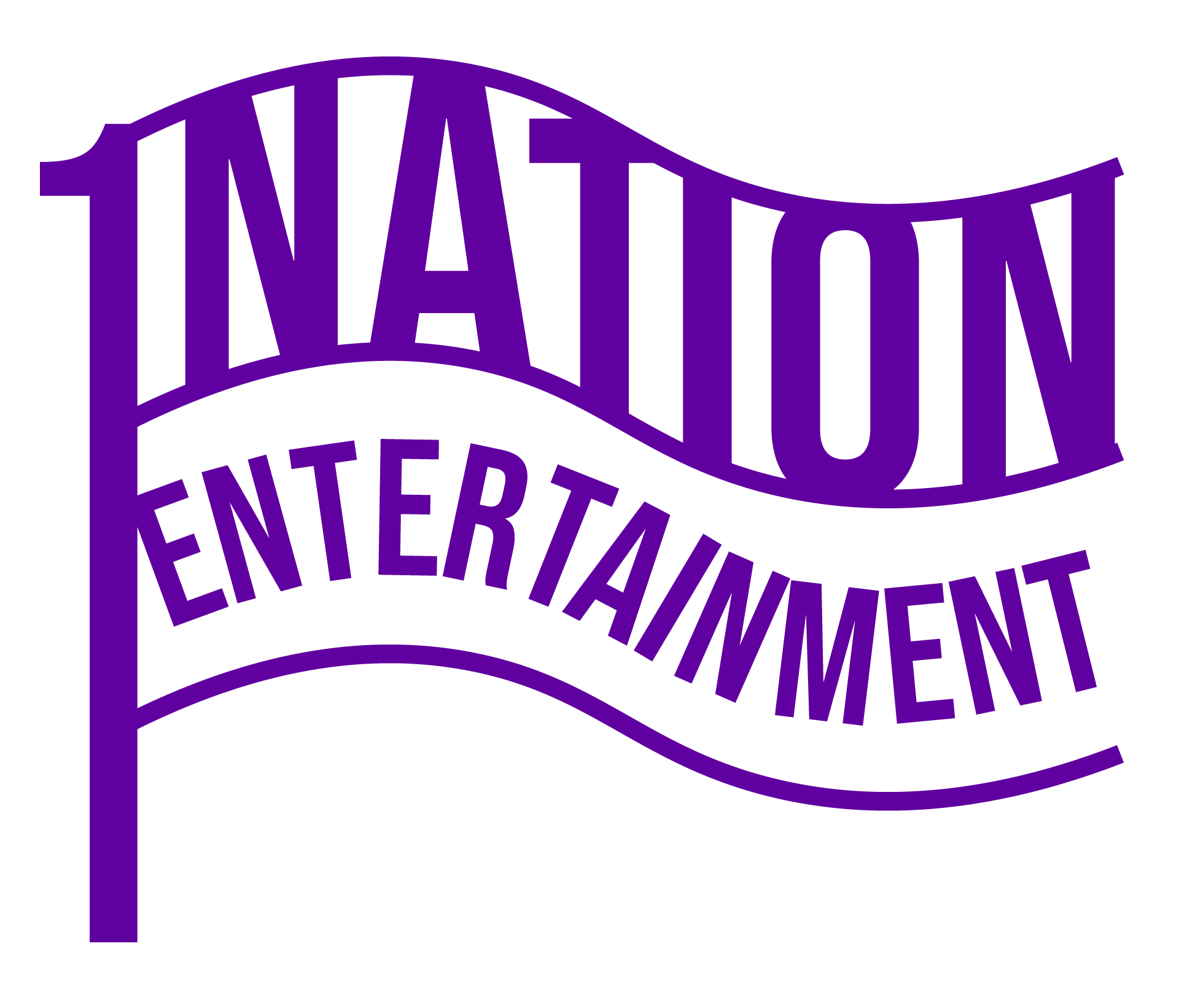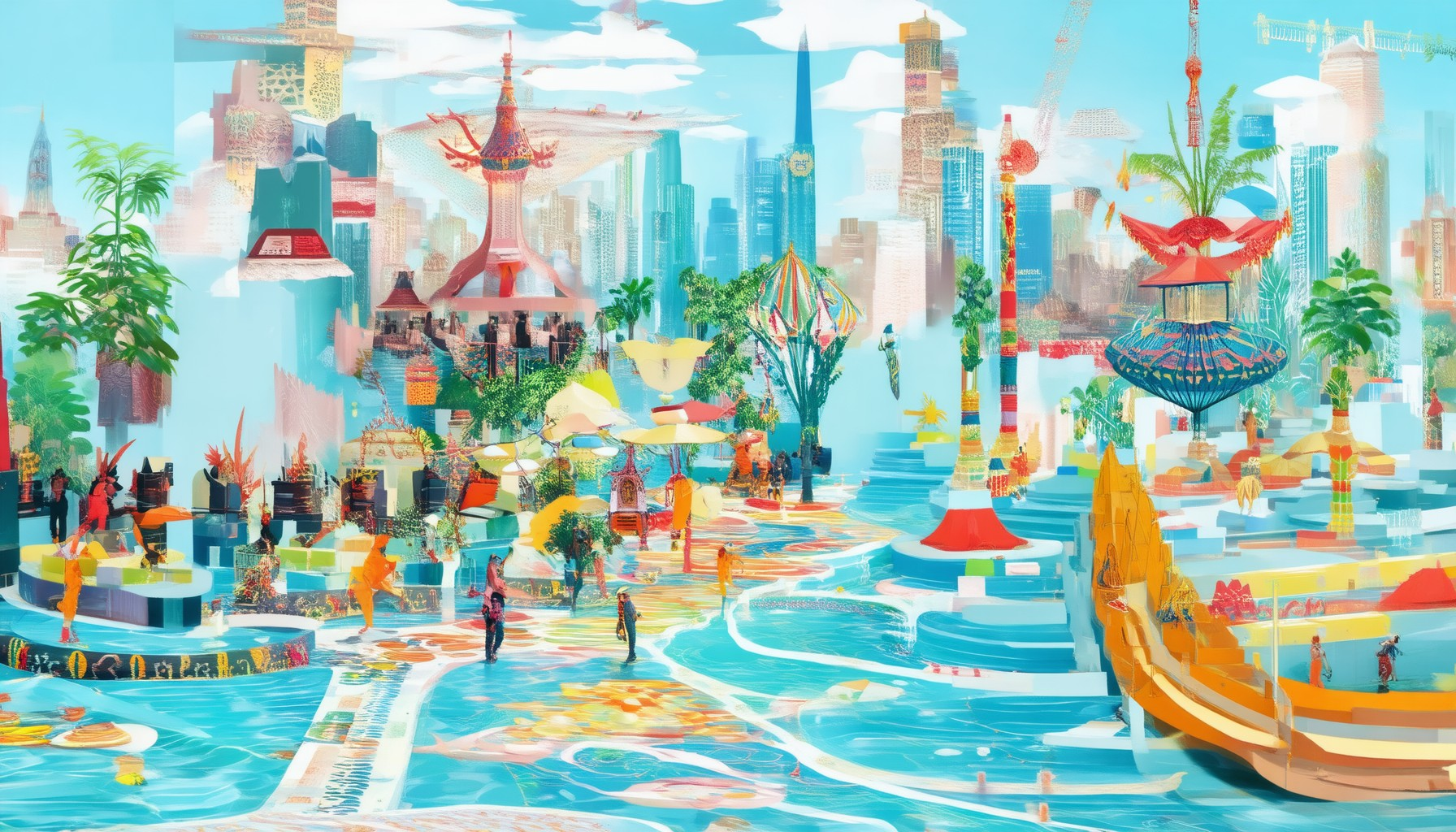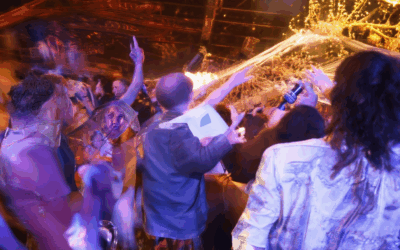Cultural entertainment trends are shaping the world we live in, influencing everything from art and media to social interactions and personal expression. As we navigate an era of rapid change, the evolution of cultural entertainment reflects broader shifts in societal values, technological advancements, and global interconnectedness. From traditional forms gaining new life to innovative formats emerging, these trends are not just entertainment—they’re mirrors of our times. Whether you’re curious about the rise of streaming platforms, the resurgence of vinyl records, or the growing popularity of immersive experiences, understanding cultural entertainment trends offers insights into where we’ve been and where we’re headed. Join us as we explore how these shifting tides are redefining what it means to engage with culture.
Key Takeaways
– Immersive Technology Integration: Cultural entertainment is transformed by VR, AR, and MR, offering unparalleled audience interaction and engagement.
– Diverse Storytelling Narratives: Inclusive representation ensures a richer array of stories, reflecting the world’s diversity and fostering empathy.
– Hybrid Formats: Blending traditional and digital elements, live-streamed performances and interactive exhibitions redefine entertainment experiences.
– Sustainability in Production: Eco-friendly practices reduce waste and carbon footprints, aligning entertainment with environmental responsibility.
– Globalization and Cross-Cultural Influence: Digital platforms make entertainment accessible worldwide, fostering unique cultural fusions and global influence.
– AI-Powered Personalization: Tailored experiences using AI algorithms enhance engagement, offering customized content for individual preferences.
– Digital Transformation: The rise of streaming platforms and VR redefines entertainment consumption, breaking geographical barriers and expanding access.
– Fan Engagement and Interactivity: Real-time voting and virtual concerts empower audiences, creating participatory and dynamic experiences.
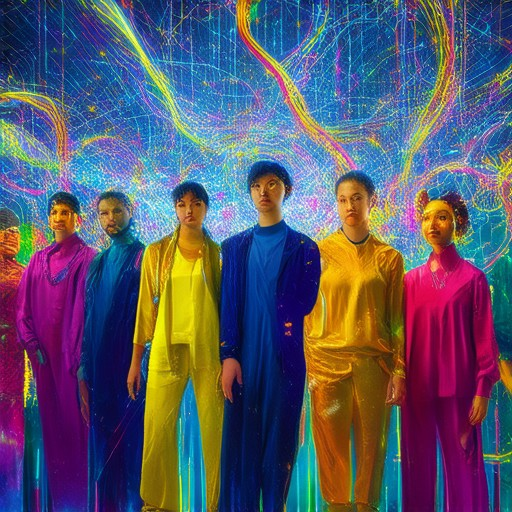
What Are the Current Trends in Cultural Entertainment?
The world of cultural entertainment is evolving rapidly, driven by technological advancements and shifting consumer preferences. Here are the key trends shaping the industry:
Digital Transformation and Streaming Dominance
The rise of streaming platforms has revolutionized how people consume entertainment. Platforms like Netflix, Spotify, and Disney+ have transformed cultural entertainment into a global phenomenon. Users now have access to a vast library of content, enabling personalized experiences through recommendations and on-demand access. This shift has also led to the rise of original content creation, with major platforms investing heavily in producing their own shows and movies.
Virtual Reality (VR) and Augmented Reality (AR) Integration
VR and AR technologies are increasingly being integrated into cultural entertainment experiences. Virtual concerts, interactive museum tours, and immersive theater performances are becoming more common. These technologies allow audiences to engage with entertainment in ways that were previously unimaginable, creating a more immersive and interactive experience.
Collaborative Art and Cross-Cultural Fusion
Cultural entertainment is seeing a growing trend of collaboration between artists from diverse backgrounds. This fusion of styles and perspectives is resulting in unique and innovative works that challenge traditional norms. Festivals and events that celebrate diversity, such as South by Southwest (SXSW) and the Cannes Film Festival, are becoming hotspots for this type of creativity.
AI-Powered Entertainment Recommendations
Artificial intelligence is playing a significant role in curating and recommending entertainment content. Platforms are using AI algorithms to analyze user preferences and suggest personalized entertainment options based on past behavior and trends. This level of personalization is enhancing the user experience and increasing the efficiency of content distribution.
Esports and Competitive Gaming
Esports has emerged as a major cultural entertainment phenomenon, attracting millions of fans worldwide. Major tournaments and leagues, such as the League of Legends World Championship and the NBA 2K League, have become global events. Esports is not just a competitive activity but also a source of entertainment that blends athleticism, strategy, and storytelling.
Interactive and Immersive Experiences
Audiences are increasingly seeking interactive and immersive experiences. From virtual reality concerts to live-action role-playing games (LARP), these experiences are redefining how people engage with entertainment. The demand for unique and memorable experiences is driving innovation in both physical and digital entertainment venues.
The Rise of Niche Audiences
While mainstream entertainment continues to dominate, there is a growing recognition of niche audiences. Platforms are catering to specific demographics, such as LGBTQ+ communities, people of color, and regional cultures, by producing content that reflects their unique perspectives and interests. This inclusivity is fostering a more diverse and vibrant entertainment ecosystem.
Social Media and User-Generated Content
Social media platforms have become a significant driver of cultural entertainment trends. User-generated content, such as viral videos, challenges, and trends, often sets the tone for what becomes popular. Influencers and creators are leveraging social media to share their passions and connect with audiences, creating a dynamic and ever-evolving landscape.
Globalization and Hybridization of Entertainment
The globalization of entertainment is leading to a blending of different cultural influences. Hybrid genres, such as K-pop, fusion cuisine, and cross-cultural films, are gaining popularity. This trend reflects the interconnectedness of today’s world and the desire for diverse stories and experiences that transcend borders.
Increased Focus on Sustainability
As the entertainment industry grows, there is a rising awareness of environmental impact. More events and productions are adopting sustainable practices, from reducing waste to using renewable energy. This shift is not only meeting audience expectations but also positioning entertainment as a catalyst for positive change.
Expansion of Accessibility
The entertainment industry is working towards making its offerings more accessible. Subscriptions models, affordable pay-per-view options, and free tier services are helping to bridge gaps in accessibility. This democratization of entertainment ensures that a wider range of people can participate and enjoy cultural experiences.
Technological Advancements in Production
From 3D printing to advanced camera technology, technological advancements are transforming production processes. These innovations are enabling the creation of more complex and visually stunning entertainment content, pushing the boundaries of what is possible in film, television, and live performances.
Focus on Mental Health and Wellness
There is a growing emphasis on mental health and wellness within the entertainment industry. Content that addresses these issues is becoming more prevalent, offering audiences a chance to reflect and connect with their emotions. This trend aligns with broader societal shifts toward prioritizing mental health.
Resurgence of Retro and Nostalgia-Themed Entertainment
Nostalgia is playing a significant role in shaping current entertainment trends. Revival of classic TV shows, music, and video games is resonating with audiences who grew up with these iconic pieces. This trend is not only entertaining but also profitable, as nostalgia-driven content consistently performs well.
Integration of Educational Elements
Entertainment is increasingly being used as a tool for education. Documentaries, web series, and educational content are combining entertainment with learning, making complex topics more accessible and engaging. This approach is particularly effective in reaching younger audiences.
Expansion of Fan Engagement Opportunities
Fans are now able to interact with their favorite entertainers in unprecedented ways. From virtual meet-and-greets to exclusive behind-the-scenes content, these engagement opportunities are enhancing fan experiences and building stronger connections between entertainers and their audiences.
Investment in Emerging Talent
There is a strong focus on nurturing emerging talent in the entertainment industry. Programs, competitions, and mentorship initiatives are providing opportunities for aspiring artists, writers, and performers. This investment in new talent ensures a vibrant and evolving entertainment landscape.
Shift Toward Community-Building Through Entertainment
Entertainment is increasingly being used as a platform for community-building. Events, campaigns, and content are designed to foster a sense of belonging among participants and viewers. This trend reflects the importance of connection and shared experiences in today’s society.
Exploration of New Distribution Channels
The entertainment industry is constantly exploring new distribution channels to reach audiences. From blockchain-based platforms to decentralized video platforms, these emerging channels offer fresh opportunities for content creators to distribute their work and engage with fans.
Focus on Original Content Creation
Original content remains a cornerstone of the entertainment industry. Major platforms are investing heavily in producing original series, films, and other content to differentiate themselves. This commitment to originality is crucial for maintaining audience interest and satisfaction.
Adoption of Data-Driven Strategies
Data analytics are being widely adopted to inform entertainment decisions. Studios, producers, and event organizers are using data to predict audience preferences, optimize content, and measure the impact of their creations. This data-driven approach is enhancing decision-making and ensuring that entertainment offerings align with market demands.
Increased Diversity in Casting and Storytelling
There is a growing push for diversity in casting and storytelling across all forms of entertainment. More inclusive narratives and diverse casts are being seen in films, television shows, and other media, reflecting the multifaceted nature of modern society.
Focus on Ethical Practices
The entertainment industry is placing greater emphasis on ethical practices, from fair labor practices to content representation. There is a growing awareness of the impact that entertainment can have on society, leading to a push for more responsible and ethical production methods.
Expansion of Mobile Entertainment Options
Mobile devices have become a key platform for entertainment consumption. Apps, games, and streaming services are optimized for mobile use, allowing users to access entertainment anytime and anywhere. This convenience is driving the growth of mobile-first entertainment experiences.
Investment in Technology Infrastructure
Significant investments are being made in technology infrastructure to support the entertainment industry. From cloud computing solutions to high-speed internet, these investments are essential for delivering seamless and scalable entertainment experiences to global audiences.
Focus on Fan Experience Optimization
Entertainment companies are optimizing the fan experience to enhance engagement and satisfaction. This includes everything from ticketing systems to in-concert lighting and sound design, ensuring that every aspect of the entertainment experience is designed to delight audiences.
Exploration of Gamification in Entertainment
Gamification is being applied to various forms of entertainment, turning passive experiences into active and engaging ones. From interactive games to augmented reality scavenger hunts, gamification is adding layers of interactivity that keep audiences entertained and coming back for more.
Shift Toward Sustainable Consumption
There is a growing movement toward sustainable consumption in entertainment. Audiences are increasingly choosing eco-friendly options, such as attending carbon-neutral events or supporting sustainable production practices. This trend aligns with broader efforts to reduce environmental impact.
Focus on Mental Health Representation
Mental health is becoming a more prominent theme in entertainment, with stories that address issues like anxiety, depression, and stress. This representation is helping to destigmatize mental health and provide support to those who may be struggling.
Integration of Advanced Marketing Techniques
Entertainment companies are leveraging advanced marketing techniques to promote their content. From data-driven advertising to influencer partnerships, these strategies are ensuring that entertainment products reach their target audiences effectively and efficiently.
Exploration of New Business Models
The entertainment industry is experimenting with new business models to adapt to changing market conditions. Subscription models, freemium tiers, and tiered pricing are becoming more common, offering flexibility for consumers and providing new revenue streams for content creators.
Focus on Global Appeal
Entertainment content is increasingly designed with a global audience in mind. This approach is evident in international collaborations, cross-border streaming services, and content that incorporates universal themes and stories. This global appeal ensures that entertainment has broad reach and impact.
Investment in Research and Development
Research and development are critical components of the entertainment industry, driving innovation and improving the quality of entertainment experiences. Investments in R&D are leading to new technologies, better content creation tools, and enhanced audience engagement strategies.
Shift Toward Community-Driven Entertainment
Community-driven entertainment is gaining traction, with a focus on user-generated content and collaborative projects. Platforms are empowering audiences to create and share their own entertainment experiences, fostering a sense of ownership and participation.
Focus on Accessibility Features
Accessibility features are becoming a priority in entertainment production. Closed captioning, audio descriptions, and sign language interpretation are being incorporated to ensure that entertainment is accessible to individuals with disabilities, promoting inclusivity and equality.
Exploration of Blockchain Technology
Blockchain technology is being explored for its potential to transform the entertainment industry. From tokenized rewards for content creators to secure distribution channels, blockchain offers innovative solutions that could reshape how entertainment is produced, distributed, and consumed.
Increased Focus on Original Music
Original music is playing a central role in cultural entertainment, with artists and labels investing in creating unique sounds and narratives. The rise of independent artists and the decline of traditional record deals have led to a boom in original music production, diversifying the entertainment landscape.
Adoption of Circular Economy Principles
The entertainment industry is embracing circular economy principles, focusing on recycling, repurposing, and reducing waste. From costume rentals to set reuse, these practices are minimizing environmental impact while creating new opportunities for innovation and sustainability.
Focus on Personalized Entertainment Experiences
Personalized entertainment experiences are becoming the norm, with technology enabling tailored content delivery based on individual preferences. From personalized playlists to customized movie recommendations, this level of personalization is enhancing the overall entertainment experience and satisfying diverse audience needs.
Exploration of Virtual Production
Virtual production is revolutionizing the way entertainment content is created and delivered. This technology allows for the creation of highly realistic and immersive environments, enabling filmmakers and producers to bring their visions to life with unprecedented precision and efficiency.
Shift Toward Interactive Storytelling
Interactive storytelling is gaining popularity, offering audiences the ability to influence the outcome of narratives. Whether through choose-your-own-adventure-style games or branching narrative experiences, this trend is enhancing engagement and providing new ways for audiences to connect with stories.
Focus on Ethical Labor Practices
There is a growing emphasis on ethical labor practices within the entertainment industry. Issues such as fair wages, safe working conditions, and union rights are being addressed by organizations and unions, ensuring that workers receive the respect and compensation they deserve.
Exploration of New Distribution Channels
The entertainment industry is constantly exploring new distribution channels to reach audiences. From blockchain-based platforms to decentralized video platforms, these emerging channels offer fresh opportunities for content creators to distribute their work and engage with fans.
Investment in Education and Training
Investments in education and training are essential for developing future talent in the entertainment industry. Schools, colleges, and workshops are offering programs that focus on skills such as screenwriting, producing, and acting, preparing the next generation of entertainment professionals.
Focus on Collaborative Workspaces
Collaborative workspaces are becoming hubs for entertainment production, providing creatives with the tools and environment needed to innovate. These spaces foster collaboration between writers, directors, and artists, accelerating the creative process and producing high-quality entertainment content.
Shift Toward Data-Driven Creativity
Data-driven creativity is transforming the entertainment industry, enabling creators to make informed decisions based on audience insights and analytics. By leveraging data, entertainment professionals can identify trends, anticipate audience preferences, and tailor content to maximize impact and engagement.
Exploration of Advanced Audiovisual Technologies
Advanced audiovisual technologies are enhancing the entertainment experience, offering new ways to deliver sound and visuals. From spatial audio to holographic displays, these technologies are pushing the boundaries of what is possible in entertainment, creating immersive and unforgettable experiences.
Focus on Mental Health Support Resources
Entertainment companies are incorporating mental health support resources into their offerings. From helplines to online resources, these initiatives aim to assist individuals who may be struggling with mental health issues, providing them with the support they need in a non-judgmental setting.
Integration of Sustainability Initiatives
Sustainability initiatives are becoming a part of entertainment production, from set design to wardrobe choices. These initiatives aim to minimize environmental impact while maintaining high standards of quality, demonstrating the industry’s commitment to preserving the planet for future generations.
Exploration of New Formats and Genres
The entertainment industry is constantly experimenting with new formats and genres to keep audiences engaged. From AI-generated content to hyper-localized programming, these innovations are ensuring that entertainment remains fresh and relevant, catering to a diverse range of tastes and preferences.
Focus on Audience Feedback Integration
Entertainment companies are integrating audience feedback into their content creation process, ensuring that their offerings resonate with viewers. From focus groups to real-time audience polling, this approach helps in refining content and delivering experiences that truly connect with audiences.
Exploration of Extended Reality (XR)
Extended reality (XR), which includes virtual reality (VR) and augmented reality (AR), is being explored for its potential to redefine cultural entertainment. XR technologies are enabling entirely new types of experiences, from virtual concerts to interactive museums, offering audiences unparalleled levels of immersion and engagement.
Shift Toward Horizontal Leadership
Horizontal leadership is becoming a model within the entertainment industry, emphasizing collaboration and shared responsibility. This approach fosters innovation and accountability, as leaders work alongside teams to develop ideas and solve problems collectively, leading to more cohesive and effective outcomes.
Focus on Cross-Disciplinary Collaboration
Cross-disciplinary collaboration is thriving in the entertainment industry, bringing together experts from various fields to create innovative and impactful content. This teamwork leads to more versatile and high-quality entertainment experiences, benefiting both creators and audiences.
Exploration of AI-Driven Post-Production
AI-driven post-production is revolutionizing the way entertainment content is finalized. From automating editing tasks to enhancing visual and auditory effects, AI tools are speeding up the production process and improving the quality of finished products, ensuring that entertainment reaches its full potential.
Shift Toward Green Entertainment Production
Green entertainment production is becoming a priority, with many projects aiming to achieve carbon neutrality. From solar-powered sets to electric vehicles on location, these practices are reducing the environmental footprint of entertainment production, aligning with global sustainability goals.
Focus on Inclusivity in Casting and Representation
Inclusivity in casting and representation is a key focus area for the entertainment industry. Efforts are being made to ensure that diverse voices are heard and represented on screen, reflecting the rich tapestry of society and promoting understanding and empathy among audiences.
Exploration of New Distribution Models
New distribution models are transforming how entertainment content is accessed and consumed. From subscription-based services to ad-supported tiers, these models are providing flexibility for consumers while offering new revenue opportunities for content
Cultural Entertainment Trends of 2025
From groundbreaking streaming platforms to innovative live events, cultural entertainment has evolved significantly in recent years. Here’s a breakdown of the most prominent trends shaping the scene today:
1. Rise of Streaming Platforms
Streaming services continue to dominate the entertainment landscape, with platforms like Spotify and Netflix leading the charge. These platforms are not just delivering content but curating experiences, offering personalized recommendations, and investing heavily in original programming. This shift has led to a boom in subscription-based models and increased competition among service providers.
2. Virtual Events Revolution
The pandemic accelerated the adoption of virtual events, and many fans prefer the convenience and accessibility of online experiences. Platforms like Twitch and YouTube Live have become hubs for live performances, Q&A sessions, and interactive gaming events. This trend shows no signs of slowing down, with hybrid events combining in-person and virtual elements.
3. Social Media Influence
Social media platforms remain integral to the discovery and consumption of cultural entertainment. Influencers and celebrities use platforms like Instagram and Twitter to engage with fans, share behind-the-scenes content, and promote events. Brands are also leveraging these platforms to connect with audiences in real-time, creating a dynamic and interactive ecosystem.
4. Immersive Experiences
Experiential entertainment is on the rise, with VR and AR technologies creating fully immersive experiences. Concerts, theater productions, and art exhibitions are now accessible in ways that blur the lines between reality and fiction. Platforms like Oculus and Pokémon GO are leading the charge in bringing these experiences to mainstream audiences.
5. Collaborative Content
Cross-industry collaborations are reshaping the entertainment landscape. Music artists are teaming up with filmmakers, chefs are collaborating with musicians, and brands are working closely with influencers to create unique, shared-content experiences. This trend emphasizes the importance of partnerships in driving innovation and engagement.
6. Genre Blending
Traditional genres are giving way to fusion styles that defy expectations. Hybrid genres like lo-fi beats, hyperpop, and trap jazz are gaining traction, appealing to diverse audiences. This trend reflects a growing appreciation for creativity and experimentation, encouraging artists to push boundaries and explore new sounds.
To stay ahead in the ever-evolving world of cultural entertainment, it’s essential to keep an eye on emerging trends and adapt to the preferences of your audience. Whether you’re a fan or a creator, the journey continues to be exciting and full of possibilities.
Discover more about the latest trends and insights by subscribing to our newsletter at 1NationEntertainment.net .
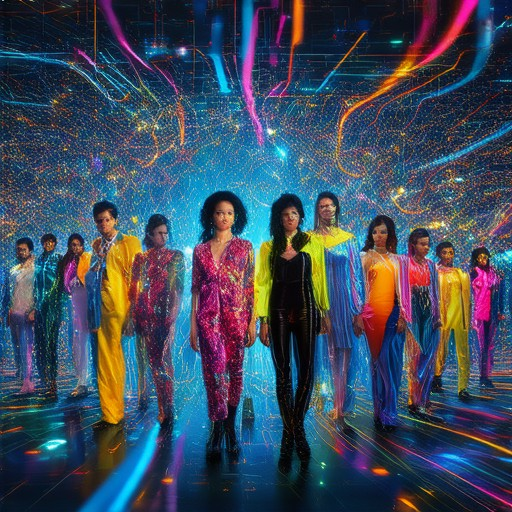
Cultural Entertainment Trends 2025
The world of cultural entertainment is evolving rapidly, driven by technological advancements and shifting consumer preferences. Here are the latest trends shaping the scene:
- Virtual Reality (VR) Experiences: VR is revolutionizing cultural entertainment by offering immersive experiences. From virtual concerts to historical reenactments, VR provides audiences with unprecedented levels of engagement and realism.
- Hybrid Live-Streamed Events: The combination of live performances with streamed content has become a staple in cultural entertainment. Artists and performers are leveraging this format to reach global audiences while maintaining the energy of in-person events.
- Personalized Digital Content: Platforms are now able to tailor entertainment experiences based on individual preferences. This includes curated playlists, personalized movie recommendations, and tailored event suggestions.
- Sustainability in Entertainment: There’s a growing emphasis on eco-friendly practices in cultural entertainment. From zero-waste festivals to renewable energy-powered events, sustainability is becoming a key factor in how entertainment is produced and consumed.
- Collaborative Cross-Platform Projects: Creators are increasingly collaborating across different mediums. This trend is leading to unique forms of storytelling and entertainment that blend traditional and modern techniques.
- Rise of Independent Artists: Independent creators are gaining significant traction due to platforms that support diverse voices. This shift is democratizing access to cultural entertainment and fostering innovation.
These trends highlight the dynamic nature of cultural entertainment today. Stay ahead of the curve by exploring more on 1 Nation Entertainment and its comprehensive coverage of the latest developments in the industry.
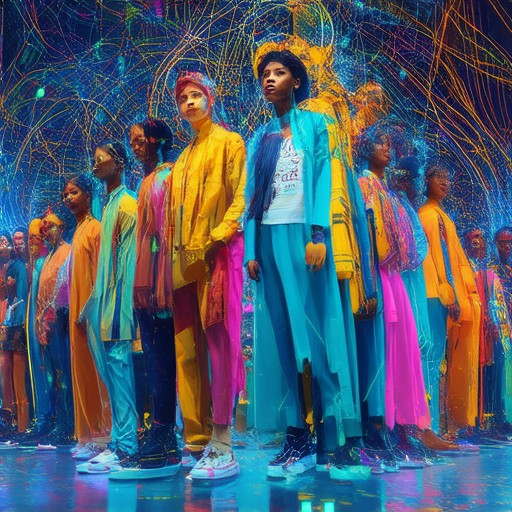
What Are the Current Trends Shaping the Future of Cultural Entertainment?
Cultural entertainment is evolving rapidly, driven by technological advancements, shifting consumer preferences, and global interconnectedness. Here are the key trends defining the future of this dynamic industry:
- Immersive Technology Integration : Virtual reality (VR), augmented reality (AR), and mixed-reality (MR) experiences are revolutionizing cultural entertainment. These technologies allow audiences to interact with performances, exhibits, and stories in unprecedented ways, creating more engaging and memorable experiences.
- Diverse Storytelling Narratives : There is a growing demand for inclusive and diverse representation in entertainment. Content creators are prioritizing underrepresented voices, leading to a richer tapestry of stories that reflect the world’s diversity.
- Hybrid Formats Combining Traditional and Digital : The lines between traditional and digital entertainment are blurring. Hybrid formats, such as live-streamed theater performances, virtual concerts, and interactive museum exhibitions, are gaining popularity.
- Sustainability in Production : Environmental concerns are driving changes in production practices. More entertainment companies are adopting eco-friendly practices, from reducing waste to using renewable energy sources during events.
- Globalization and Cross-Cultural Influence : The rise of digital platforms has made cultural entertainment accessible worldwide. This globalization is fostering cross-cultural influences, resulting in unique blends of traditions and modern creativity.
- AI-Powered Personalization : Artificial intelligence is enabling personalized entertainment experiences. Algorithms analyze audience preferences to tailor content, from customized playlists to adaptive performances that adjust based on real-time feedback.
These trends highlight the dynamic nature of cultural entertainment, promising innovative experiences and opportunities for creators and audiences alike. Stay tuned to explore more about how these developments are reshaping the industry.
The Evolving Trends in Cultural Entertainment
Cultural entertainment is constantly transforming, driven by technological advancements, global interconnectedness, and shifting audience preferences. These trends reflect broader societal changes and offer fresh ways to engage with art and recreation.
Digital Transformation
One of the most significant shifts in cultural entertainment is the rise of digital platforms. From streaming services to virtual reality experiences, technology has redefined how people consume entertainment. Platforms like 1 Nation Entertainment are at the forefront, offering cutting-edge content and immersive experiences that cater to diverse audiences.
- Streaming Services: The popularity of services like Netflix, Spotify, and Disney+ has revolutionized access to entertainment. These platforms provide on-demand content, breaking down geographical barriers and offering endless options for viewers.
- Virtual Reality (VR): VR is transforming live performances and exhibitions into fully immersive experiences. Artists and performers can now connect with audiences in ways previously unimaginable, creating a new dimension of cultural engagement.
Globalization of Entertainment
Entertainment is increasingly global, with cross-border collaborations and adaptations becoming the norm. This trend reflects the world’s growing interconnectedness and the desire for universal storytelling.
- International Collaborations: Global stars and production houses are teaming up to create content that resonates worldwide. This collaboration is evident in the rise of Indian cinema’s global influence and the adaptation of foreign films into local languages.
- Cultural Adaptation: Stories are being translated and localized to suit diverse cultures, ensuring that entertainment remains relatable and impactful across borders.
Technology Integration
Technology is not just a tool for distribution but also a creative force shaping entertainment. Artificial intelligence, augmented reality, and machine learning are being used to enhance creativity and personalize experiences.
- AI-Powered Content Creation: Tools like AI writing assistants are helping creators craft stories and scripts faster and more efficiently. This innovation is democratizing content creation and enabling smaller studios to compete with major players.
- Interactive Experiences: Audiences are increasingly seeking interactive entertainment. Whether through gamified shows or real-time polls, technology is making entertainment more participatory and dynamic.
Sustainability in Entertainment
As environmental concerns grow, the entertainment industry is embracing sustainable practices. From eco-friendly sets to energy-efficient productions, sustainability is becoming a key factor in content creation.
- Eco-Friendly Sets: Motion picture and television productions are adopting greener practices, reducing waste and carbon footprints. This shift aligns with audience demand for responsible entertainment consumption.
- Carbon Neutral Production: Some studios are aiming for carbon neutrality, setting a benchmark for the industry to follow. This trend is expected to gain momentum as awareness grows.
Fan Engagement and Interactivity
Entertainment is moving beyond passive consumption. Fans are now active participants, shaping narratives, voting in competitions, and influencing content through social media and online platforms.
- Live Voting and Polls: Shows like American Idol and Got Talent have demonstrated the power of fan interaction. Viewers can vote for their favorite acts, creating a sense of ownership and investment in the outcome.
- Virtual Concerts: Artists are leveraging virtual platforms to connect with fans globally. These concerts often feature augmented reality elements, making the experience more immersive and memorable.
These trends highlight the dynamic nature of cultural entertainment. As technology evolves and global connections strengthen, the future of entertainment promises to be even more vibrant and innovative. At 1 Nation Entertainment , we stay ahead of these changes, bringing you the latest insights and updates on the entertainment world.
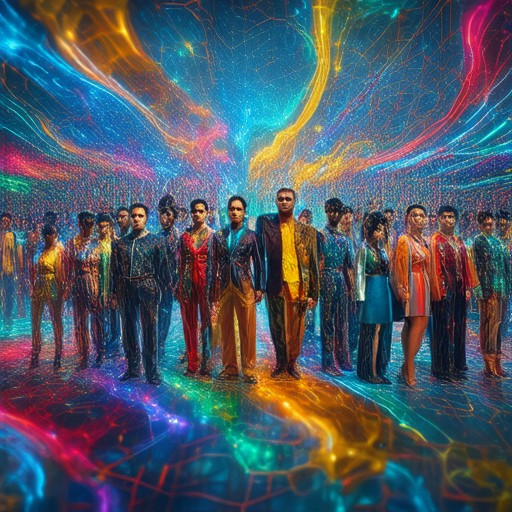
Current Trends in Cultural Entertainment
Cultural entertainment continues to evolve rapidly, driven by technological advancements and shifting consumer preferences. Here are some of the most notable trends shaping the industry in 2025:
- Technological Integration: Streaming platforms remain dominant, but virtual reality (VR) and augmented reality (AR) are revolutionizing live experiences. Virtual concerts, immersive theater productions, and interactive art exhibitions are becoming mainstream, offering audiences unprecedented levels of engagement.
- Collaborative Art Forms: Artists from diverse backgrounds are coming together to create unique, boundary-pushing works. This trend is fueled by social media’s ability to connect creators globally and by platforms like 1 Nation Entertainment that champion emerging voices.
- Globalization of Content: Cultural entertainment is increasingly influenced by a mix of local traditions and international influences. Hybrid genres, such as K-pop meets classical music, are gaining traction and appealing to global audiences.
- Sustainability in Production: There’s a growing emphasis on eco-friendly practices in entertainment production. From solar-powered concerts to recycled set designs, the industry is aligning with environmental goals.
- Interactive Experiences: Audiences are seeking more involvement in performances. This includes real-time voting in talent shows, crowd-sourced art installations, and gamified theater experiences.
To stay informed about these trends and discover cutting-edge content, visit 1 Nation Entertainment . Our platform provides in-depth analysis, exclusive interviews, and updates on the latest developments in cultural entertainment.
Conclusion: The future of cultural entertainment is bright, blending innovation with creativity. Platforms like ours are committed to curating and promoting the trends that define this dynamic and ever-changing field.
